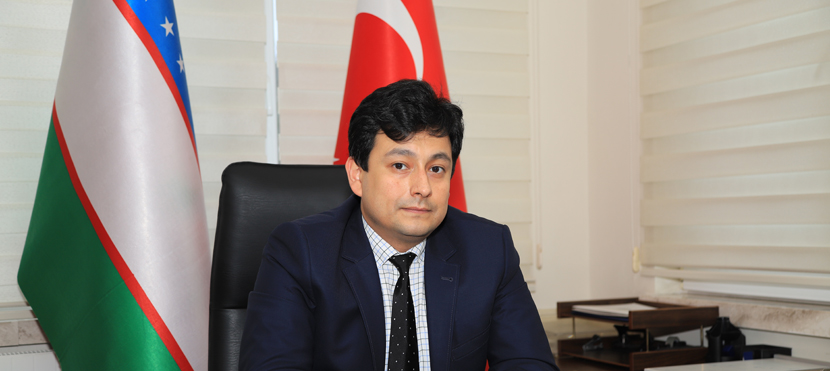As the public knows, a group of journalists and bloggers from our country recently visited this charming country, located at the crossroads of Asia and Europe, within the framework of the project of the Turkish Agency for Culture and Tourism “Tourism in the context of the pandemic”. In particular, they had the opportunity to see get the sights of ancient Istanbul, with its 16 million population, ancient monuments, in a word, with the unique culture of the Turkish world.
During this visit, the Editor-in-Chief of our magazine had a discussion with the Consul General of the Republic of Uzbekistan in Istanbul, Amirsaid AGZAMKHODJAEV. Below we bring to your attention this conversation.
– Amirsaid Saidazimovich, first of all, thank you for the warm welcome and agreeing to give an interview to our magazine. First of all, I would like to know about the attitude of the Turkish people to Uzbekistan.
– In general, you know that the Turkish people call our country their Fatherland. The curricula of public education in Turkey also provide information about the history of our country, its charming cities of Samarkand and Bukhara. Therefore, every Turkish citizen knows our country from a young age, which in different historical periods was called Transoxiana, Turkestan. Uzbekistan is known to the Turkish people as the cradle of great cultures, the land that gave birth to outstanding scientists, as a country with a great history of statehood. Having such ideas and knowledge, it is natural that any changes taking place in Uzbekistan do not leave Turkish citizens indifferent, finding a response in the soul and heart of everyone.
– How do you personally assess the activities of the Consulate General of our country in Istanbul, one of the largest cities in the world, based on the current realities of life?
– Of course, the most important activity of the Consulate General is primarily the protection of the rights and interests of our citizens, providing them with legal and advisory assistance. At the same time, we are doing some work on holding negotiations with investors to promote the economy of our country and attract tourists.
– What is the level of relations in trade, economic, tourism, cultural and humanitarian spheres between Istanbul and the cities of our country?
– In our activities, the issues of trade, economic and investment cooperation have become a priority. We tried not to ignore any Turkish entrepreneur who came to us, we listened to everyone without exception. Our goal is to keep the Turkish business community informed and, above all, about the fundamental changes in Uzbekistan. The magazines and presentation materials in Turkish that we proposed, helped in this – we were able to present to businessmen the “new” Uzbekistan, liberal, open for communication and cooperation. To give an example from the tourism sector, we managed to organize a dialogue with existing travel agencies in Turkey on a permanent basis. That is, we found companies that carry out tours to Uzbekistan, studied their demand and supply, made a note of their problems and provided all possible assistance in solving them. In turn, we have prepared a database of travel agencies operating in our country and shared it with Turkish partners in order to establish more effective cooperation in the tourism industry. Thanks to the magazine “Tamaddunlar beshigi – O’zbekiston” prepared by us, thematic brochures in Turkish about the main tourist sites – cities of our country – “Yer yuzining saiqali Samarqand”, “Islomning kubbasi Bukhoro”, “Khorazm injusi Khiva” – potential tourists were able to get comprehensive information about the historical monuments that our ancient cities are rich in, including the “Yetti Pir” complexes for educational tours.
– According to available data, the main part – 60 percent of our compatriots who are currently temporarily staying and working in Turkey, live in Istanbul. This is a very large figure, which hides the scale of the problems and concerns of migrants, isn’t it? Can you tell more about the work carried out by the Consulate for comprehensive protection of migrant workers and their families. In what sectors of the economy are our compatriots mainly employed? What problems and difficulties do they most often face in everyday life and how do they solve them?

Leave a Reply